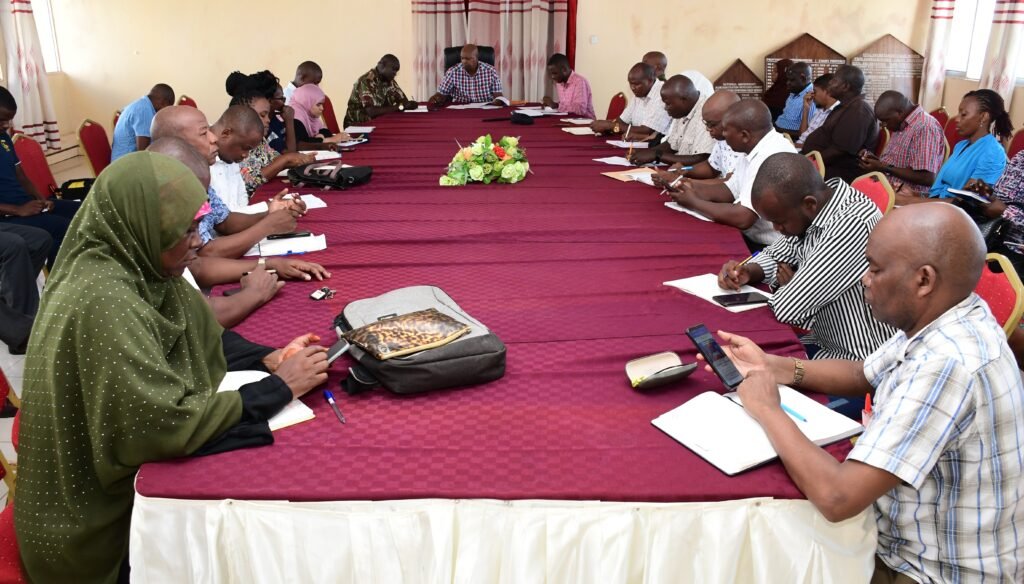By Sadik Hassan
The uptake of grants for community projects under the Kenya Marine Fisheries and Socio-Economic Development (KEMFSED) program is alarmingly low, with Director of Fisheries Collins Ndoro expressing deep concern.
Speaking during a National Government Development-Mombasa County Implementation Coordination and Management Committee (NGD-CICMC) meeting, Mr Ndoro revealed that the absorption rate is just 40 per cent in Mombasa.
The five-year project implemented by the State Department for Blue Economy and Fisheries has disbursed Sh1.75 billion grants to 621 community projects in Mombasa, Kwale, Kilifi, Lamu and Tana River counties against a budget of Sh4 billion.
Mr Ndoro said in components one and two of the World Bank-funded project a total of Sh441 million has been disbursed to 196 community projects in Mombasa, but a lack of land ownership documents prevented many groups from benefiting.
In Kwale, Kilifi, Lamu and Tana River counties Sh374m, Sh380m, Sh245m and Sh129m have been disbursed respectively.
Mombasa County Commissioner Mohamed Nur urged KEMFSED to step up sensitization efforts for fisherfolk to benefit from the grants and improve their livelihoods before the end of the project in March 2025.
The project objective is to improve the management of priority fishery and mariculture and increase access to complimentary livelihood activities in coastal communities.
The project has awarded 300 scholarships worth Sh16.74 million to cater for TVET courses and secondary school for students from the fisher folk communities in the five coastal counties.
At the same time, the County Director of Education (CDE) Gachungi Murithi informed the committee that absenteeism contributes to poor performance in national examinations.
Students, he said, abscond classes once they are registered for national examinations, the boy learners are notorious, resulting in poor grades.
The CDE stated tracing learners who scored E’s in KCSE has proven to be a Herculean task, as some don’t even collect their certificates.
CC Nur directed chiefs and education officials to collaborate in tracing learners who failed to attain university entry grades to join TVETs.
Mvita Deputy County Commissioner Ronald Mwiwawi said the Port City doesn’t have adequate TVETs institutions, thus the need to establish for the local youth to tap into the Blue Economy opportunities.
Mwiwawi added that Mvita legislator Mohamed Machele pushed for the Mama Ngina Secondary School buildings to be converted into a TVET institution after the school was relocated to a 20-acre land in Shimo la Tewa, Kisauni constituency.
On the all-out war against drugs, and bootleg liquor, the DCC said the environment where learners hail from influences them to indulge in drug abuse.
“Drug abuse contributes to school dropouts, most of our learners are day scholars. Concerted efforts are needed by parents, teachers and children,” said Mwiwawi.


